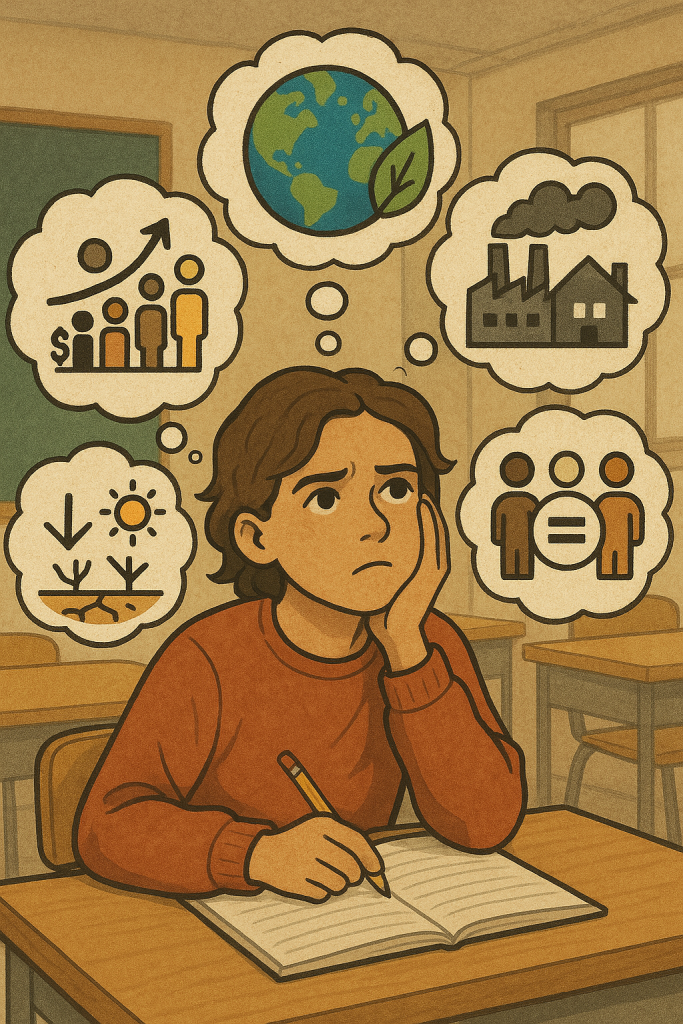I recently read a really interesting article from The Conversation in relation to digital citizenship and the recent bans of mobile phones in schools, resulting from concerns in relation to social media use by children. It got me thinking about digital citizenship and a couple of terms which seem to keep coming up in my discussions around mobile phone bans, around tech use, around AI and also around digital citizenship.
Critical thinking

We are definitely living in a world of increasing volumes of content. I remember reading something some years ago about the amount of content published online in a week or month exceeding everything produced in Shakespeare’s lifetime. The reality is that the pace of content creation has only increased since then, as has the potential for false or fake content to be produced, and for it to be quickly and effectively propagated to the masses. So, we need students who are critical, who can review content. Now often the narrative stops here as to whether content is true or false, and its impact on the individual, but as suggested by the article I read, we need to get students looking beyond this. We need to get them considering what the content means in terms of how we are living our lives. Does the fact something has been liked millions of times tell us something about us? Does a heated online debate tells us something about peoples’ views and how they may differ? We need students to consider not just the impact on themselves but on their local community, on a regional and national level and also on society as a whole. We need to help students to think more broadly and deeply than we have ever had to do before.
Balance
This is one of my favourite words and is apt in a world of binary arguments on social media. For me the reality is the world is more complex than it has ever been before. This is not due to the world itself, or to society, etc becoming more complex but due to our perception of it. As we have sought to explain things and learn more about the world we live in we have invented new categories for behaviours, for traits, for processes and more. And with each new category or explanation we appear to know more about our world, about society and about us as humans within it, but also we create a more complex picture. It may be a better and more detailed picture, yes, but it is also more complex and difficult to use. It reminds me that an idiot may be certain about things due to their simplistic understanding, but the more I learn, the more I see the limitations of my knowledge and therefore the less I know. With all of this increasing complexity it becomes clearer that things are less clear than they have ever been, and certainly less clear than the press and social media portray them. There is no black and white, only a world of greys, a world of uncomfortable balance in which the only certainty is that we will live with unending uncertainty. We could do with getting comfortable with this. So, for our students we need to have the discussions around the big and thought-provoking questions which force us to explore the many balances which exist in the world. We need students to learn to wrestle with uncertainty and complexity, and to be comfortable doing so.
Big Questions
From reading the Conversation article and from some discussions I had around the same time, the key for me seems to be that of discussion of the big questions which surround digital citizenship. Its trying to create those Ah-Ha moments which students will have at some point in the future when they realise how a discussion of public good versus individual privacy in an assembly relates to the situation in front of them. Or where when seeking to decide on the software they plan to use in their lives, they consider the lessons which touched on the implications of free software for the masses where the company providing it is a corporate entity with shareholders and a need to make profit. We need to be helping students think, including dealing with challenges which are outside their immediately knowledge and skills set rather than teaching to a predefined set of facts or knowledge. We need them to be able to use technology, including artificial intelligence, to help them navigate the digital world they inhabit.
Now, I get the need for schools to teach the basics of English, Maths, Science, etc but we need to find a balance between this and the broad thinking which I think this world so desperately needs. We need to help students consider the big questions regarding the lives we lead, the choices we make or have made, and to have a voice in change.
References:

